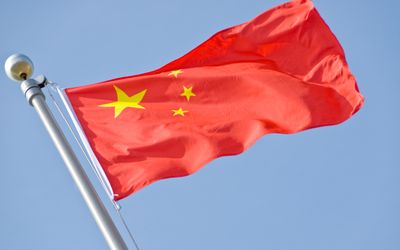No need to fear Chinese media in Africa
by Bob Wekesa,
2014-03-11 06:00:33.0
ACROSS Africa, analysis of the implications of China’s relentless engagement continues to draw unprecedented attention. Browse some of Africa’s notable news media and the sheer surfeit of news items discussing one or another aspect of Chinese activity is conspicuous. This focus on China-in-Africa was anything but a hot topic just a few years ago.
China, as the news story of the moment, reclines on our news values — is it big and sexy enough to warrant airplay or column inches? From schisms over Chinese migrations in Zambia and Ghana to building oil extraction infrastructure in Angola and a dual-carriageway in Nairobi, the story is compelling.
What news media have not perhaps considered is that China is diversifying its engagements into their own turf. Not that China is new in African media. Radio Peking and Beijing Review, precursors of today’s China Radio International and China Africa magazine, made their forays into Africa in the 1960s to support the propaganda of liberation struggles — mostly in southern Africa.
Many have worried that the present entry of Chinese media into Africa poses threats to the practice of journalism in democracies. Analysts have looked at state-party media control systems in China and concluded that these would be exported to Africa.
Fears of an ideological co-option are mostly misplaced if one cares to analyse content in recent Chinese entrants, such as China Daily and CCTV. There is hardly a bent towards a communist persuasion even in the opinion and commentary slots of these Chinese media. Rather, one sees Chinese media on a public diplomacy mission, angling stories to show the benefits of China-Africa relations while avoiding narratives that cast China in a negative light. Once in a while, Xinhua News Agency — the sole Chinese news agency — is compelled to counter articles or statements from western media and politicians vociferously. But this is often in the context of responses to US and European elites’ framing of China as a neocolonial predator in Africa.
In the case of CCTV Africa, the broadcaster may indeed be advancing the cause of pan-African coverage, seeing as it is the only TV station that airs a 90-minute daily news programme exclusively focused on Africa. Indeed, CCTV Africa has challenged BBC’s Focus Africa and Reuters’ Africa Journal with a suite of programmes such as Faces of Africa, a weekly features programme, and Talk Africa, a talk show often dominated by African thought leaders.
In these respects, CCTV Africa may be doing what broadcasters such as the SABC and the Union of National Radio and Television Organisations of Africa tried to do in the past, but whose goals of going continental largely faltered. Knowing that CCTV Africa is on a public diplomacy mission would perhaps spur pan-African entities — the African Union for example — to roll out a similar effort.
Strategy can be delineated in studying the entry of Chinese media into Africa. While Kenya has been chosen as the headquarters of Chinese media’s continental drive, there is a huge presence of the same Chinese media operations in South Africa. Nairobi has long been the city of choice for other international media, while Johannesburg (and Cape Town) are attractive by dint of South Africa’s economic prowess.
In Kenya, Chinese media have forged partnerships with local state-owned media, using, for example, the airwaves of the Kenya Broadcasting Corporation. In South Africa, Chinese media links tend more towards pursuing boardroom deals, as five recent events have shown. While the entry of StarTimes, the Chinese pay TV and digital media company, was relatively easy in Kenya, its approach in South Africa was much more sophisticated. StarTimes had to bide is time for an opportunity, which eventually presented itself in the collapse of On Digital Media, the owner of TopTV, now renamed Starsat.
Why was it smoother for StarTimes to enter Kenyan and other African media markets and tougher for them to grab a piece of the lucrative South African market? The laws on foreign investment in the media sector in most African countries are not as strict as South Africa’s.
The argument from some quarters that Chinese media would reverse press freedom gains in Africa is clearly overblown. In any case, China has not only welcomed African media in China, but South African companies such as Naspers and e.tv have established thriving operations in China.
• Wekesa is a research associate at Wits Journalism.

Picture: THINKSTOCK
ACROSS Africa, analysis of the implications of China’s relentless engagement continues to draw unprecedented attention. Browse some of Africa’s notable news media and the sheer surfeit of news items discussing one or another aspect of Chinese activity is conspicuous. This focus on China-in-Africa was anything but a hot topic just a few years ago.
China, as the news story of the moment, reclines on our news values — is it big and sexy enough to warrant airplay or column inches? From schisms over Chinese migrations in Zambia and Ghana to building oil extraction infrastructure in Angola and a dual-carriageway in Nairobi, the story is compelling.
What news media have not perhaps considered is that China is diversifying its engagements into their own turf. Not that China is new in African media. Radio Peking and Beijing Review, precursors of today’s China Radio International and China Africa magazine, made their forays into Africa in the 1960s to support the propaganda of liberation struggles — mostly in southern Africa.
Many have worried that the present entry of Chinese media into Africa poses threats to the practice of journalism in democracies. Analysts have looked at state-party media control systems in China and concluded that these would be exported to Africa.
Fears of an ideological co-option are mostly misplaced if one cares to analyse content in recent Chinese entrants, such as China Daily and CCTV. There is hardly a bent towards a communist persuasion even in the opinion and commentary slots of these Chinese media. Rather, one sees Chinese media on a public diplomacy mission, angling stories to show the benefits of China-Africa relations while avoiding narratives that cast China in a negative light. Once in a while, Xinhua News Agency — the sole Chinese news agency — is compelled to counter articles or statements from western media and politicians vociferously. But this is often in the context of responses to US and European elites’ framing of China as a neocolonial predator in Africa.
In the case of CCTV Africa, the broadcaster may indeed be advancing the cause of pan-African coverage, seeing as it is the only TV station that airs a 90-minute daily news programme exclusively focused on Africa. Indeed, CCTV Africa has challenged BBC’s Focus Africa and Reuters’ Africa Journal with a suite of programmes such as Faces of Africa, a weekly features programme, and Talk Africa, a talk show often dominated by African thought leaders.
In these respects, CCTV Africa may be doing what broadcasters such as the SABC and the Union of National Radio and Television Organisations of Africa tried to do in the past, but whose goals of going continental largely faltered. Knowing that CCTV Africa is on a public diplomacy mission would perhaps spur pan-African entities — the African Union for example — to roll out a similar effort.
Strategy can be delineated in studying the entry of Chinese media into Africa. While Kenya has been chosen as the headquarters of Chinese media’s continental drive, there is a huge presence of the same Chinese media operations in South Africa. Nairobi has long been the city of choice for other international media, while Johannesburg (and Cape Town) are attractive by dint of South Africa’s economic prowess.
In Kenya, Chinese media have forged partnerships with local state-owned media, using, for example, the airwaves of the Kenya Broadcasting Corporation. In South Africa, Chinese media links tend more towards pursuing boardroom deals, as five recent events have shown. While the entry of StarTimes, the Chinese pay TV and digital media company, was relatively easy in Kenya, its approach in South Africa was much more sophisticated. StarTimes had to bide is time for an opportunity, which eventually presented itself in the collapse of On Digital Media, the owner of TopTV, now renamed Starsat.
Why was it smoother for StarTimes to enter Kenyan and other African media markets and tougher for them to grab a piece of the lucrative South African market? The laws on foreign investment in the media sector in most African countries are not as strict as South Africa’s.
The argument from some quarters that Chinese media would reverse press freedom gains in Africa is clearly overblown. In any case, China has not only welcomed African media in China, but South African companies such as Naspers and e.tv have established thriving operations in China.
• Wekesa is a research associate at Wits Journalism.























Change: -0.47%
Change: -0.57%
Change: -1.76%
Change: -0.34%
Change: 0.02%
Data supplied by Profile Data
Change: -1.49%
Change: 0.09%
Change: -0.47%
Change: 0.00%
Change: -0.02%
Data supplied by Profile Data
Change: 0.48%
Change: 0.91%
Change: 0.38%
Change: -0.15%
Change: 0.93%
Data supplied by Profile Data
Change: 0.24%
Change: -0.21%
Change: 0.26%
Change: -1.05%
Change: -1.41%
Data supplied by Profile Data